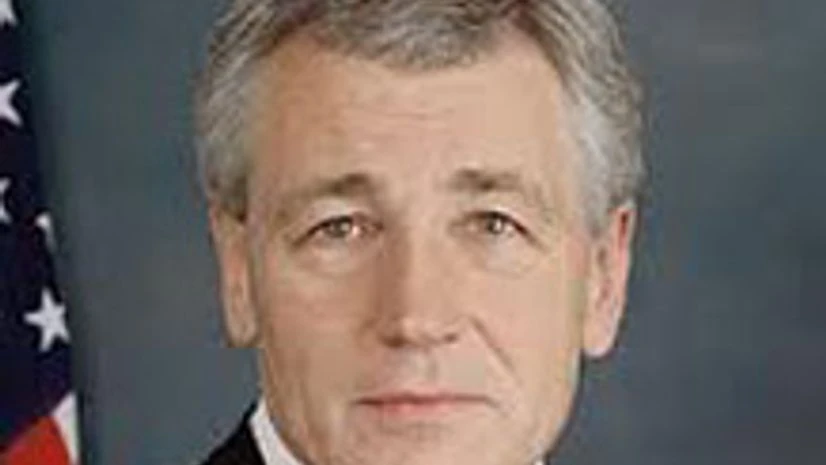Pentagon chief Chuck Hagel flew to Mongolia today to endorse stronger military ties with a government eager for US partnership as a counterweight to its powerful neighbours, Russia and China.
Hagel's trip to Mongolia, only the second by a US defence secretary and the first in nine years, will feature the signing of a "joint vision" statement between the two sides that calls for expanding military cooperation through joint training and assistance, US officials said.
The visit came after a three-day swing through China that was marked by public clashes over Beijing's territorial disputes with its neighbours and its relations with North Korea.
Also Read
The mostly symbolic document to be signed in Ulan Bator is likely to irritate China, which has accused the Americans of seeking to hold back its rise by cultivating military ties with smaller Asian neighbours.
"This statement is both a demonstration of the growth of the US-Mongolia relationship, having served side by side together with coalition forces in Iraq and Afghanistan, as well as the rebalance to the Asia-Pacific where the United States is deepening cooperation with all of our allies and partners," a senior US defence official, who spoke on condition of anonymity, said in a statement.
China has also questioned Washington's strategic "pivot" to the Asia-Pacific as a bid to thwart Beijing's role in the region.
In Ulan Bator, Hagel was due to meet Mongolian soldiers who have served with the NATO-led force in Afghanistan as well as peacekeeping missions in Sierra Leone, South Sudan and Chad.
Mongolia now has about 350 troops with coalition forces in Afghanistan, its 10th deployment of the war.
The United States spends about $2 million a year on military vehicles and communication equipment for Mongolia along with USD 1 million on training of the country's 10,000-strong army.
Landlocked Mongolia, once a satellite of the Soviet Union, peacefully threw off 70 years of communist rule in 1990 and its small military has embraced peacekeeping missions in recent years.
Mining of Mongolia's vast coal, copper and gold reserves has helped transform an economy once dependent on nomadic lifestyles not far removed from its empire-building hero Genghis Khan 800 years ago.
Mongolia is Hagel's final stop on a 10-day Asia tour that included a meeting of Southeast Asian defence ministers in Hawaii and a two-day visit to Japan.
Throughout his trip, Hagel appealed for a peaceful resolution of territorial arguments that China has with Japan in the East China Sea and with the Philippines and other countries in the South China Sea.
In a thinly veiled warning to Beijing, which has taken an assertive stance in the disputes, Hagel repeatedly said no country should use "coercion" or "intimidation" to try to settle the territorial claims.
He vowed that the United States would stand by its military alliance treaties with Japan and the Philippines.

)
